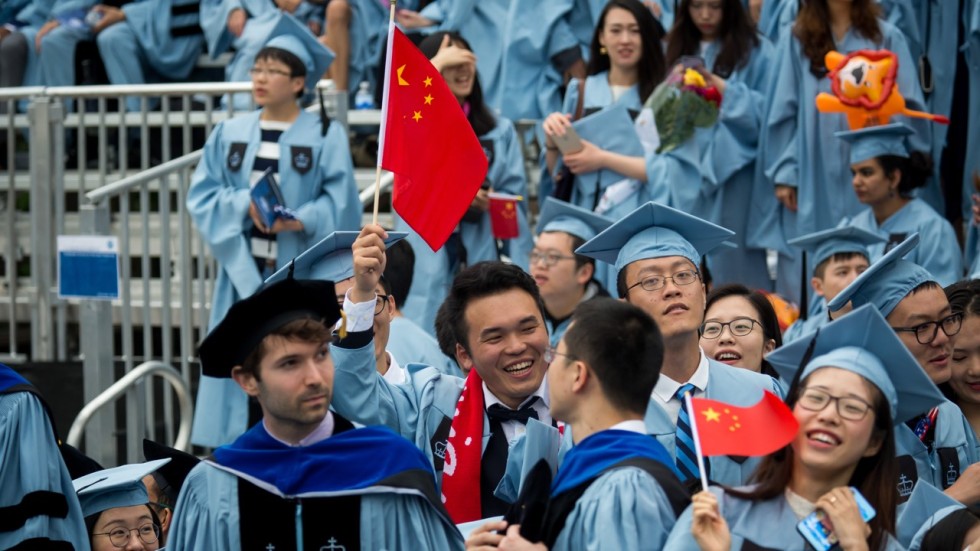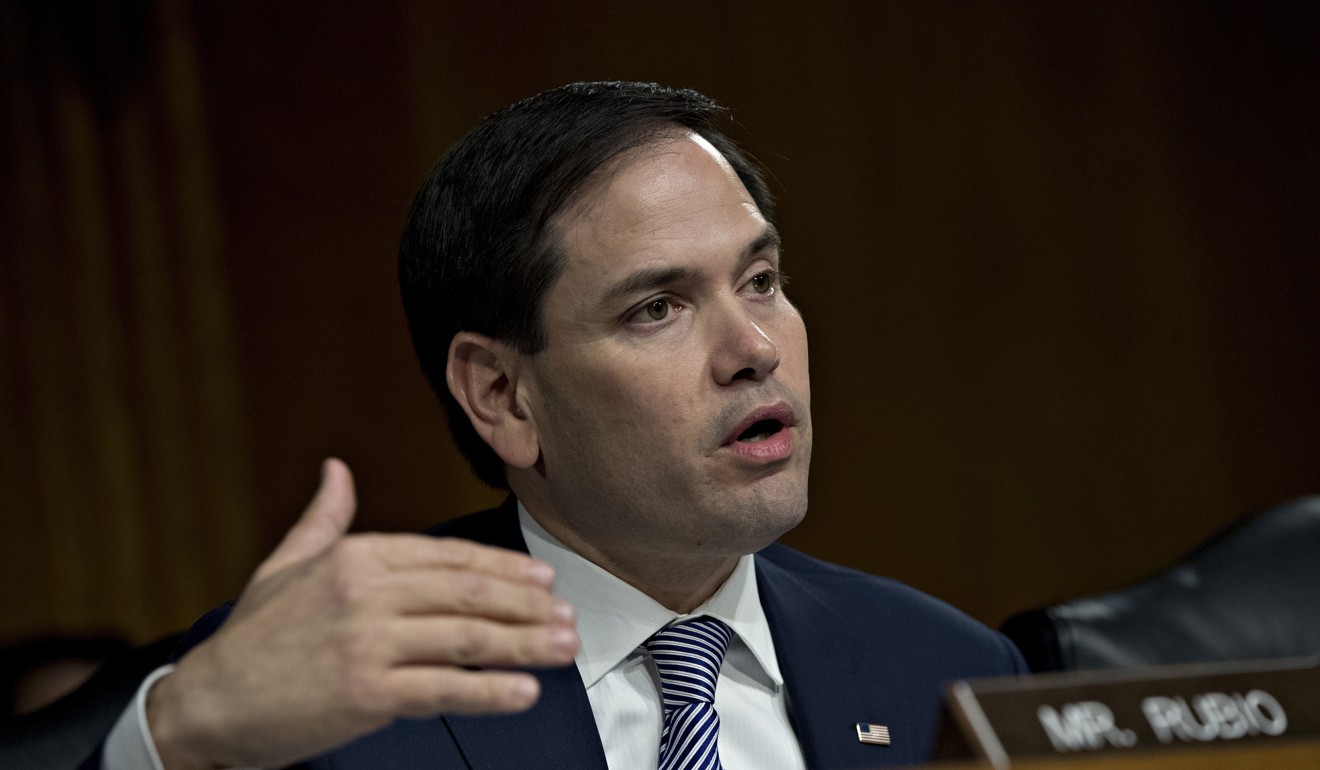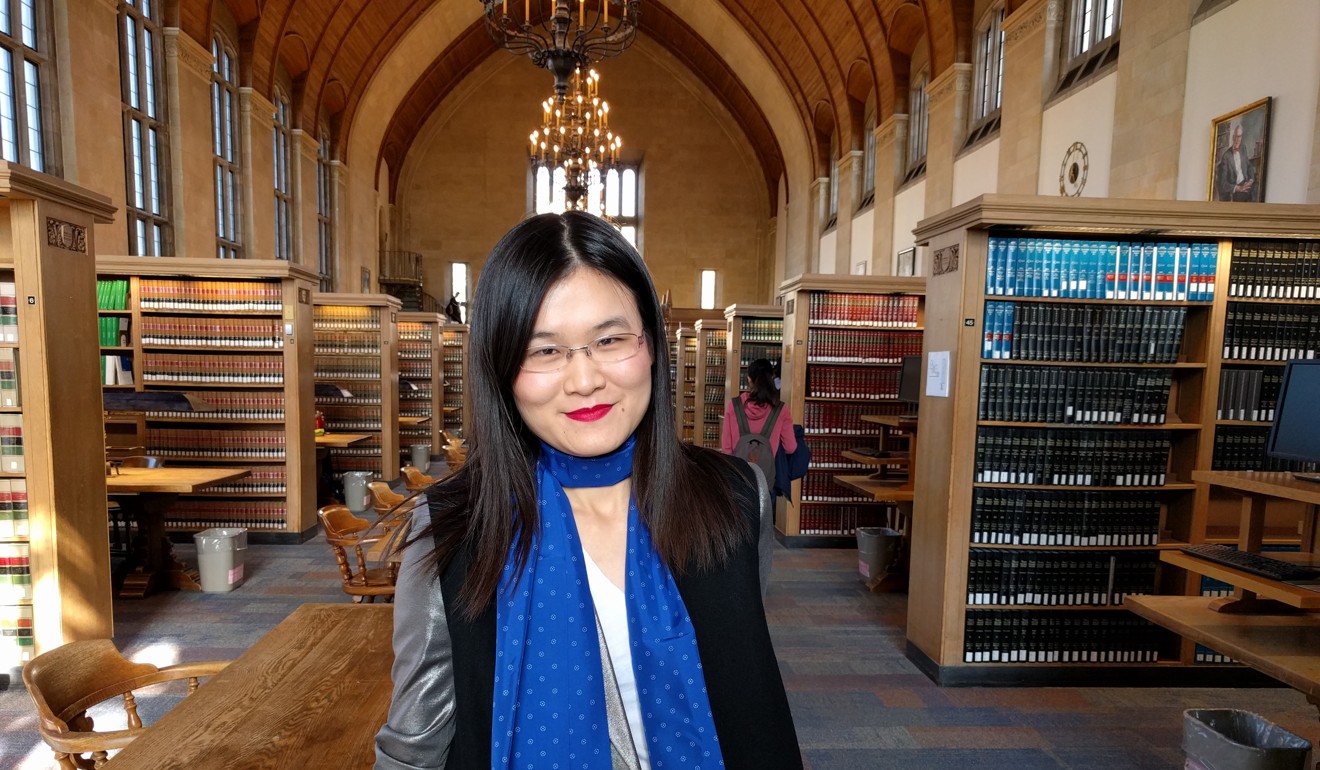Chinese hi-tech students may find their US visas restricted under a new rule - and Senator Marco Rubio is delighted
‘Student & academic visas are another weapon they use against us in their campaign to steal & cheat their way to world dominance,’ US Senator Marco Rubio wrote of China

New limits on how long some Chinese students can stay in the United States – introduced by the Trump administration in order to battle what it considers theft of US intellectual property by Beijing – are receiving applause from at least one senator, but getting pushback from others outside Congress.The State Department has told US embassies and consulates that Chinese postgraduate students who are studying subjects that Beijing has prioritised for its “Made in China 2025” strategy, including robotics, aviation and hi-tech manufacturing, could be limited to one-year visas.
Senator Marco Rubio, Republican of Florida, hailed the policy change as “another great move!” in a tweet on Wednesday. “China poses unprecedented threat,” he wrote. “Student & academic visas are another weapon they use against us in their campaign to steal & cheat their way to world dominance.”

The State Department announced the changes, which will take effect on June 11, on Tuesday. The current US maximum visa length for Chinese applicants is five years, and previous standard practice had been to issue student visas for the full period.
Made in China 2025 is Beijing’s plan to develop China into a technological superpower, particularly in areas such as robotics, artificial intelligence and hi-tech manufacturing.
Chinese students say US visa restrictions won’t affect their plans
Chinese students are currently caught in the middle of the escalating trade dispute between the two countries. The changes come as US President Donald Trump and his administration seeks to crack down on China's trade practices and Chinese acquisitions of US technologies in industries that Beijing wants to dominate.
On Tuesday, Trump announced 25 per cent tariffs on US$50 billion of Chinese goods in retaliation for what his administration calls China's unfair trade practices.
A hint at the coming changes was seen in December. A document highlighting Trump's national security strategy said the US would review and tighten visa procedures “to reduce economic theft by non-traditional intelligence collectors.”
It specifically mentioned possible restrictions on visas for foreign students studying science, technology, engineering and mathematics.
China is the largest source of international students globally, with more than 600,000 leaving the mainland to pursue higher education overseas last year. The US remains the largest destination, according to the Chinese think tank Centre for China & Globalisation.
While Rubio endorsed the restrictions as “harsh” but “necessary”, others said they were racist and could unintentionally benefit China.
What happens to ‘Made in China 2025’ as trade war fears grow
The changes “will have an inadvertent effect that helps the Chinese government in talent recruitment as well as in its efforts to extend its influence beyond the borders,” said Yangyang Cheng, a mainland China native and a particle physicist at Cornell University in New York.
Cheng, who moved to the US in 2009 to pursue graduate studies, earned a PhD in physics from the University of Chicago in 2015. A scientific freedom advocate, she participated in the “March for Science” shortly after Trump took office.

“I think it's a wrong approach to address a real problem,” Cheng said of the policy change. “It won't work on a practical level, but it is also racist and wrong to base the rule on students’ country of origin.”
While the visa application process itself has not changed, “every visa decision is a national security decision, and we must ensure that applicants do not pose a risk to the United States,” a State Department spokeswoman told the South China Morning Post in an email.
How Stephen Hawking’s Chinese disciple is smashing universal barriers in his spirit
Some applications will be required to undergo additional administrative processing, the spokeswoman said. “Consular officers can also limit visas on a case-by-case basis, as appropriate to the circumstances of each case,” she added.
But Cheng believes the policy is unrealistic and short-sighted.
“America should have learned the lesson from the cold war that no country can hold a monopoly in high tech,” she said. “Science and technology recognise no borders.”
www.fotavgeia.blogspot.com
‘Student & academic visas are another weapon they use against us in their campaign to steal & cheat their way to world dominance,’ US Senator Marco Rubio wrote of China

New limits on how long some Chinese students can stay in the United States – introduced by the Trump administration in order to battle what it considers theft of US intellectual property by Beijing – are receiving applause from at least one senator, but getting pushback from others outside Congress.The State Department has told US embassies and consulates that Chinese postgraduate students who are studying subjects that Beijing has prioritised for its “Made in China 2025” strategy, including robotics, aviation and hi-tech manufacturing, could be limited to one-year visas.
Senator Marco Rubio, Republican of Florida, hailed the policy change as “another great move!” in a tweet on Wednesday. “China poses unprecedented threat,” he wrote. “Student & academic visas are another weapon they use against us in their campaign to steal & cheat their way to world dominance.”

The State Department announced the changes, which will take effect on June 11, on Tuesday. The current US maximum visa length for Chinese applicants is five years, and previous standard practice had been to issue student visas for the full period.
Made in China 2025 is Beijing’s plan to develop China into a technological superpower, particularly in areas such as robotics, artificial intelligence and hi-tech manufacturing.
Chinese students say US visa restrictions won’t affect their plans
Chinese students are currently caught in the middle of the escalating trade dispute between the two countries. The changes come as US President Donald Trump and his administration seeks to crack down on China's trade practices and Chinese acquisitions of US technologies in industries that Beijing wants to dominate.
On Tuesday, Trump announced 25 per cent tariffs on US$50 billion of Chinese goods in retaliation for what his administration calls China's unfair trade practices.
A hint at the coming changes was seen in December. A document highlighting Trump's national security strategy said the US would review and tighten visa procedures “to reduce economic theft by non-traditional intelligence collectors.”
It specifically mentioned possible restrictions on visas for foreign students studying science, technology, engineering and mathematics.
China is the largest source of international students globally, with more than 600,000 leaving the mainland to pursue higher education overseas last year. The US remains the largest destination, according to the Chinese think tank Centre for China & Globalisation.
While Rubio endorsed the restrictions as “harsh” but “necessary”, others said they were racist and could unintentionally benefit China.
What happens to ‘Made in China 2025’ as trade war fears grow
The changes “will have an inadvertent effect that helps the Chinese government in talent recruitment as well as in its efforts to extend its influence beyond the borders,” said Yangyang Cheng, a mainland China native and a particle physicist at Cornell University in New York.
Cheng, who moved to the US in 2009 to pursue graduate studies, earned a PhD in physics from the University of Chicago in 2015. A scientific freedom advocate, she participated in the “March for Science” shortly after Trump took office.

“I think it's a wrong approach to address a real problem,” Cheng said of the policy change. “It won't work on a practical level, but it is also racist and wrong to base the rule on students’ country of origin.”
While the visa application process itself has not changed, “every visa decision is a national security decision, and we must ensure that applicants do not pose a risk to the United States,” a State Department spokeswoman told the South China Morning Post in an email.
How Stephen Hawking’s Chinese disciple is smashing universal barriers in his spirit
Some applications will be required to undergo additional administrative processing, the spokeswoman said. “Consular officers can also limit visas on a case-by-case basis, as appropriate to the circumstances of each case,” she added.
But Cheng believes the policy is unrealistic and short-sighted.
“America should have learned the lesson from the cold war that no country can hold a monopoly in high tech,” she said. “Science and technology recognise no borders.”
www.fotavgeia.blogspot.com

Δεν υπάρχουν σχόλια:
Δημοσίευση σχολίου